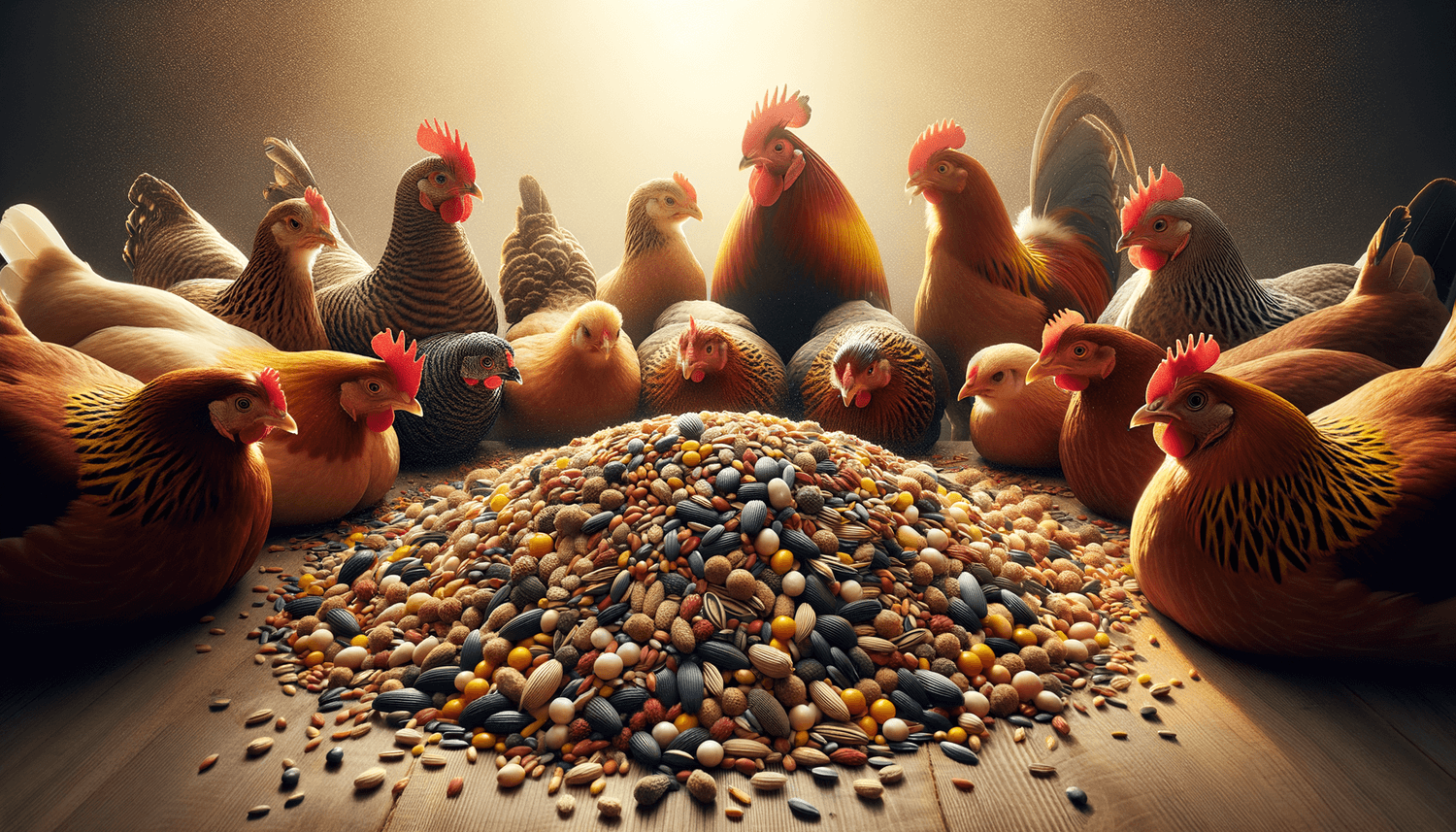Yes, chickens can eat bird seed. Bird seed is generally safe for chickens to consume and can be a source of variety in their diet. However, it should supplement their main diet of balanced chicken feed and should not be the primary food source.
Quick Summary
- Chickens can eat bird seed.
- Bird seed is safe as a supplement to their main diet.
- Key benefits include nutritional variety, but overconsumption can pose risks.
- Recommended as an occasional treat, not a staple food.
Overview of Bird Seed
Bird seed is a mixture of grains and seeds formulated for the dietary needs of wild birds. The nutritional content varies depending on the mix but often includes sunflower seeds, millet, cracked corn, and other grains. Typically high in carbohydrates and fats, bird seed provides a good source of energy for birds but has a different nutritional balance than chicken feed designed for poultry.
Benefits and Risks of Bird Seed for Chickens
Chickens benefit from eating bird seed as it introduces variety into their diet, which can be enriching for them. The seeds can provide energy and some protein, which are essential for a chicken’s health. However, risks arise when chickens overconsume bird seed, leading to an imbalance in their diet due to inadequate protein and excess fat, which is not ideal for their health or egg production. Some bird seeds also contain ingredients that may not be suitable for chickens or could pose a choking hazard if not the correct size.
Feeding Guidelines
Bird seed should be given to chickens as a treat and should not exceed 10% of their overall diet. Scatter it on the ground to encourage foraging behavior or mix it sparingly into their regular feed to keep their diet balanced. Ensure that the bird seed does not contain any components that are toxic to chickens, such as chocolate, dried fruits with added sugars, or artificial sweeteners.
Alternatives
If you prefer not to feed bird seed to your chickens or are looking for alternative treats, you can offer a variety of other foods. Cooked grains, oatmeal, vegetables like squash and cucumbers, and fruits such as apples and berries are all healthy, chicken-safe options. Always prioritize a complete poultry feed that meets all of their nutritional requirements as the foundation of their diet.
Expert Opinions
Poultry nutritionists and veterinarians often recommend providing a well-balanced commercial chicken feed as the mainstay of a chicken’s diet. They suggest that treats, including bird seed, should be given sparingly. Many experts refer to the “90/10 rule,” where 90% of a chicken’s diet should be specifically formulated poultry feed, with a maximum of 10% from treats or other supplementary items.
Frequently Asked Questions
Here are some of the common questions asked by chicken owners about feeding bird seed to their flock.
Can chickens digest bird seed easily?
Yes, chickens can digest bird seed easily as long as it is appropriately portioned and not the main part of their diet. Their gizzard helps them grind down the seeds, but they require a balanced diet to maintain optimal health.
Is it safe for chickens to eat sunflower seeds often found in bird seed mixes?
Sunflower seeds are generally safe for chickens and can be a good source of fats and proteins, but should be fed in moderation due to their high-fat content.
Are there any types of bird seed chickens should avoid?
Chickens should avoid bird seed that contains any toxic additives or seeds that have been treated with chemicals or pesticides. It’s always best to choose organic and untreated seeds if possible.

















